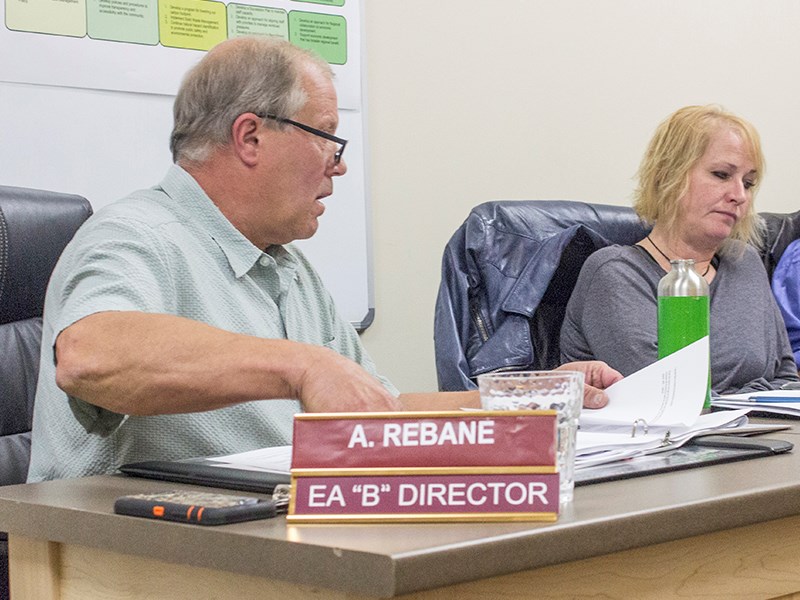In a narrow four to three decision, Powell River Regional District board voted on October 26 to request the province considers renaming the local government qathet Regional District.
Regional district staff have submitted all public feedback obtained through the September engagement process to BC minister of municipal affairs and housing Selina Robinson and requested the provincial cabinet approves the change, said Electoral Area A director and board chair Patrick Brabazon.
"I'm very pleased it has gone through," said Brabazon. "It was a very good process.
With just over 500 comments from a population of approximately 20,000 people, Brabazon said he felt overall that the name change “wasn’t a pressing issue for most residents of the regional district.”
The regional district received 221 letters of support for the proposed name change and 192 in opposition through public engagement. Of the opposition letters received, 30 respondents indicated they would support a name change, just not the one under consideration. The regional district received 99 letters of support from Tla’amin Nation citizens.
At the meeting, Electoral Area B alternate director Al Rebane moved to amend the motion to have the name-change decision moved to a referendum during next October’s local government elections. Rebane said while he means no disrespect to Tla’amin Nation elders who gifted the proposed name, the amount of feedback collected does not support proceeding.
“Surely, 220 positive results and 190 negatives does not represent the region’s voters,” said Rebane.
Rebane said he is still not satisfied with the name-change’s fuzzy cost estimates and because other names were not included to choose from.
Municipal director CaroleAnn Leishman, who voted against Rebane’s referendum amendment, said the whole point of using the process the regional district chose was to avoid the expense associated with a holding a referendum. She said the board should be honoured to have been gifted the name from Tla’amin elders.
“In the spirit of reconciliation of our communities working together, this absolutely works for me,” said Leishman.
Electoral Area C director Colin Palmer told the board he supported Rebane’s amendment. Palmer said he thought the process for collecting the public’s thoughts was flawed and that an official referendum would provide more reliable direction from the electorate.
“This whole thing has been unbelievable,” Palmer told the board. “I've never seen anything like it.”
Palmer also questioned why the regional district allowed members of Tla’amin Nation to participate in the process as they are now part of “a completely separate government.”
“I want to know why they voted on our issue,” said Palmer.
Brabazon responded to Palmer saying that collecting the public’s thoughts was not the same as them voting.
“No one voted,” said Brabazon.
Submissions collected from Tla’amin Nation citizens were set aside and will go to Ministry of Municipal Affairs and Housing as “a simple indication of public support from Tla’amin,” said Brabazon.
Rebane’s motion was defeated four votes to three.
Electoral Area D director Sandy McCormick voted against the name change, while Electoral Area E director Merrick Anderson and Leishman both voted in favour.
Municipal director Russell Brewer said he supported the name change because it presented an opportunity for community to continue its reconciliation work.
“The name change may be symbolic, but it's very powerful,” said Brewer. “Language is powerful.”
After the meeting, Rebane said he was disappointed with the result.
“I just think it should be up to the people,” he said.
Brewer said the name change is a concrete action that demonstrates real societal change. He added that it is up to community leaders such as the regional board to stand up and show other communities what that change looks like.



